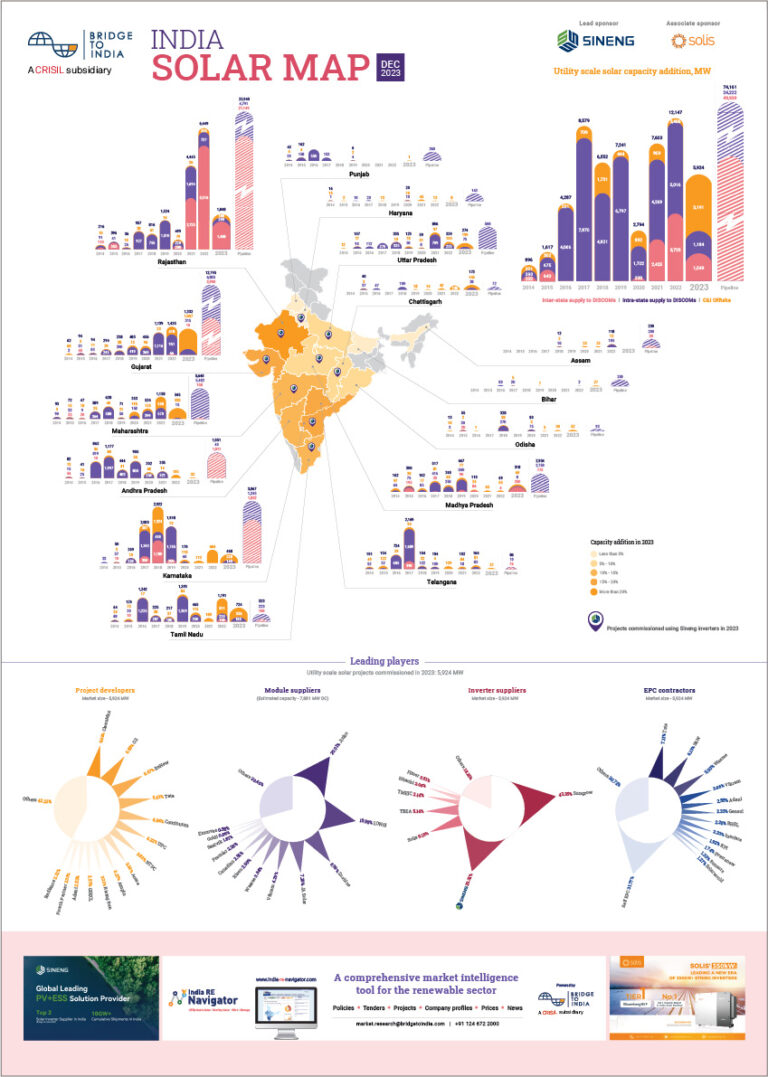Kerala’s Agency for Non-Conventional Energy and Rural Technology (ANERT) has chosen 14 companies to be eligible to set up battery backed 1 kWp projects under the state’s 10,000 rooftop solar power programme (refer). It is expected that more than 4,000 applications have already been received from homeowners interested in setting up such systems.
- Kerala is the first state to incentivize individual solar power systems at this scale
- The chosen companies have provided pre-determined prices for the rooftop solar systems. Customers will also receive subsidies from the state government
- Issues related to grid infrastructure and net-metering need to be addressed for India to create a market ecosystem around distributed solar power
The homeowners can now choose from any of these 14 companies to get their systems installed. The eligible companies include Millennium Synergy Pvt. Ltd., Power One Micro Systems, Gensol Consultants, Adithya Solar Energy Systems, Solar Integration India, Su-Kam Power Systems, Tata Power Solar Systems, Surana Ventures, UM Green Lighting, Ammini Solar, Waree Energies, Luminous Power Technologies, Eversun Energy and Chemtrols Solar. The companies have provided pre-determined prices at which such systems will be available. Millenium Synergy has been able to provide the minimum price of INR 177,541 (USD 3,347) for a system with 1,000 Wp solar modules, 7,200 Wh battery bank and a 1 kW inverter. The state government will provide a subsidy of INR 92,262 (USD 1,742) on this system. Therefore, the effective cost of such a system to the homeowner will be just INR 85,279 (USD 1,605) or INR 85.30/Wp (USD 1.61/Wp).
Such systems will be especially useful for rural and remote locations where the grid is unreliable and in many cases unavailable. A 1 kW system is suitable to run two tube lights, two fans and a television.
Kerala is the first Indian state to incentivize individual solar power systems at this scale. The incentive for battery backed systems makes a lot of sense under Indian conditions as grid connectivity of distributed power generation systems in India is still far from reality.
Given the high irradiation, high power deficit and unavailability of grid infrastructure in large parts of the country, India perhaps has the highest potential for distributed solar power generation among all emerging markets. However, most policies in the country have focused on utility scale solar power projects as the implementation authorities feel that this is the easiest way to meet solar targets.
However, strategically it makes more sense for India to create a market ecosystem around distributed solar power generation and Kerala has taken a step in the right direction. Issues related to grid infrastructure and net-metering need to be addressed to make the market grow faster.
Jasmeet Khurana works on project performance benchmarking, success factors for module sales, financing and bankability of projects in India.
This post is an excerpt from this week’s INDIA SOLAR WEEKLY MARKET UPDATE. Sign up to our mailing list to receive these updates every week.
You can view our archive of INDIA SOLAR WEEKLY MARKET UPDATES here.












